Over the years I’ve spotlighted a number of different off-grid living situations and lifestyles; one of the lifestyles that have captured my attention the most is the mobile/nomadic lifestyle. Recently we added the RV/Travel category to OffGridSurvival.com, and we are going to start featuring people who have chosen to uproot from traditional society and take on the mobile lifestyle.
Our first profile piece is about a unique family of five who has been traveling fulltime in a 5th wheel RV since 2014. The Globe Trekker Family, as they call themselves, has been exploring the USA and Canada since they retired from the military. Instead of going back into the workforce, they sold their home, vehicles, and all of their belonging and used the money to buy a truck and a 5th wheel RV so they could travel fulltime.
The Globe Trekker Family
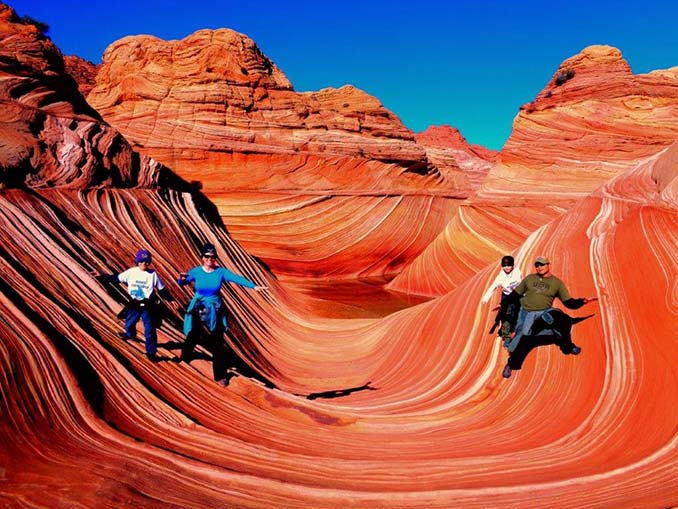
Can you tell us about your RV Trailer and what you’ve done to make it your own?
We have a 2014 Primetime Crusader 360BHS, 41’ 5th wheel bunkhouse. We did extensive research before purchasing our RV and this one was the only one we found that had all of the features we wanted, such as a bunkhouse with plenty of closet storage and a ½ bathroom, a kitchen with a raised bar for extra seating, a fireplace, a central vacuum, a walk-through master bathroom, a king size bed, and an outdoor kitchen.
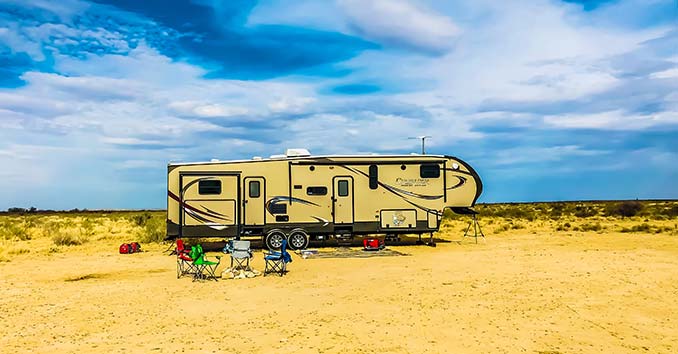
We’ve made minor adjustments inside the RV to better fit our lifestyle. We removed the sleeper sofa located under a bunk in the boys’ bunkhouse and turned that space into an entertainment area with a TV, gaming consoles, toy storage, and chairs. In the living area, we reversed the sofa and dining table. The original sleeper sofa was too close to the TV area, and we replaced it with a double rocker/recliner sofa. The dining booth was way too large for the little use it saw, so we removed the center seat, leaving only the two side benches, and bought a smaller table. We placed the new dining table closer to the kitchen and raised bar.
How do you power your RV, and what do you do for water, heat, and communications?
When we boondock, we have two Honda EU2000 Companion and Inverter generators for power. If we’re not using the air conditioner, only one generator is sufficient. The RV has a 70-gallon freshwater tank and we have a 30 gallon bladder that we can fill and use an electric pump to transfer the water from the bladder to the tank. Our furnace, refrigerator, and hot water heater can run on propane gas. For communications, we have an iPhone X and a jetpack with Verizon Unlimited service. We had AT&T for over two years and never had a problem. We’ve now had Verizon for almost two years and have also never had a problem.
When you’re not driving, where do you park and how long do you typically stay?

We typically try to keep our driving from point A to point B to around 200 miles. We will stay at an RV Park, or we can boondock, depending on where we are and what we need. We like to stay at every location for one week so that we have time to explore and also time to relax. When we first started out, we only stayed 3-4 days at each place, and that was exhausting. After six months, we realized that we didn’t have to keep up the “vacation” mentality and that we could slow down so that we didn’t get burnt out.
Does anyone ever bother you out on the road or when you’ve set up a base camp?
We’ve never been bothered. Actually, we’ve found the opposite to be true. We meet some great people and still keep in contact with many of them. People are usually very friendly and have some great travel stories of their own to tell, so it’s fun getting to know the neighbors. We also naturally look out for each other.
Do you have emergency backup plans in place for bad weather or anything else that may go wrong?
We stay prepared by ensuring we have adequate groceries, water, fuel, propane, and diesel. We’ve evacuated hurricanes, hunkered down during tornado warnings, and even experienced a 6.1 earthquake in the RV. Surprisingly, it only swayed the RV, and the RV probably gets more roughed up driving down the road. We keep a few extra essentials on hand, like water valves and filters, pull handles for the dump tanks, and 5-gallon gas and diesel containers.
Can you provide some tips for people who are thinking about doing the same thing?
For people who are thinking about RVing fulltime, I would say to do your research and find the RV that’s right for your family at a price within your budget. You don’t want to be on the road stressing about paying the bills. You also don’t want to regret buying your RV because upgrading later can be very costly – RVs depreciate at record rates, and upgrading will set you back even further. Talk to RVers to find out the pros and cons of the different types of RVs so that you know what will work for your family. Seek out facebook groups or other social networks with people who are doing what you want to do. You can ask questions and get information straight from the experts who are already doing what you want to do.
What effect has the mobile lifestyle had on you and your family? Is it easy to make friends or still have a social life out on the road?
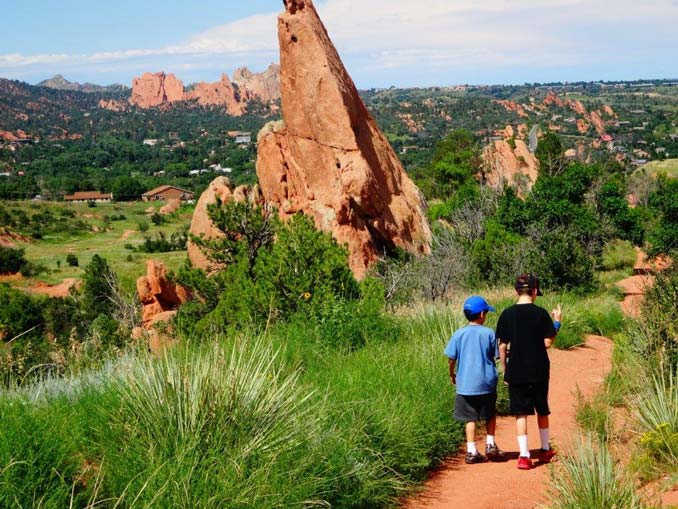
We’ve grown closer as a family. Our marriage has improved, and our kids are inseparable. Traveling fulltime has had a positive effect on our family. We’re not really the social type, but we sometimes talk with our neighbors and keep in contact with many of them. The boys make quick friends everywhere we go, although they are not lasting friendships, just in passing. We’ve only made life-long friendships with two other families since we’ve been on the road. People who are more social and put themselves out there more will be able to make more friends.
What are some of the challenges associated with living in such a small place?
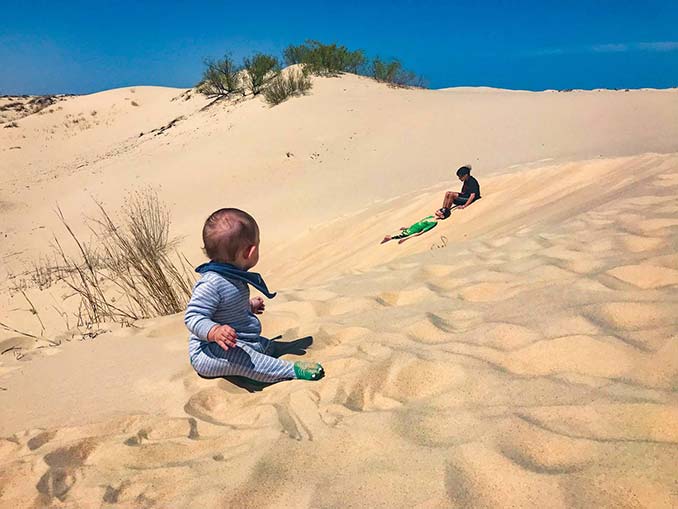
I really can’t think of any challenges with living in a small space. We really enjoy it and never want a big home again. If we start to feel cooped up, we just go outside. The world is our backyard, and since we travel fulltime, we are always in new places with new things to do. We’re never bored.
What kind of challenges have you faced, and if you had to start over is there anything you would do differently this time?
If we had to start over, I would try to find a smaller RV. Ours is 41 feet, and we are too large for many places, especially in the eastern US, Florida, and California. We have to stay on larger roads and scout out locations ahead of time to ensure we’ll fit. We’ve been in some really tricky locations, some we thought we wouldn’t be able to get out of, and some that caused damage to our RV. I would prefer something around 30 feet, but I doubt I’d be able to find one that has all the feature we want.
When the RV needs repairs, you’d think everyone on earth owns an RV, and every single RV is in the shop getting repaired because every RV service department you call will tell you they’re six weeks out or that they can’t take you at all. We’ve had emergencies and pulled into an RV servicer in a sparsely populated area that didn’t look busy at all, and they flat out refused to help us. It’s so frustrating. Then, when you do finally find a place, they want to keep your RV for weeks even after you explain to them that it is your home and they’ve got one week to fix it. On that note, we highly recommend a good extended warranty. Ours has paid for itself about four times over.
How do you work from the road? Do you have any tips for people who are looking to take the plunge but are worried about how they can finance the lifestyle?

We are retired military, so we get a monthly pension. However, we’ve met people on the road who do all sorts of things, like travel nursing, camp hosting, working in the oil fields, doing multi-level marketing, or working virtually in a number of jobs. I blog about our travels and the RV lifestyle at www.TheGlobeTrekkerFamily.com, which provides some extra income, but that can take a while to develop enough to make a fulltime income.
Do you have any final words of advice for those looking to either go off the grid or do something similar to what you are doing? What should they expect, what can they do to prepare for the change in lifestyle?
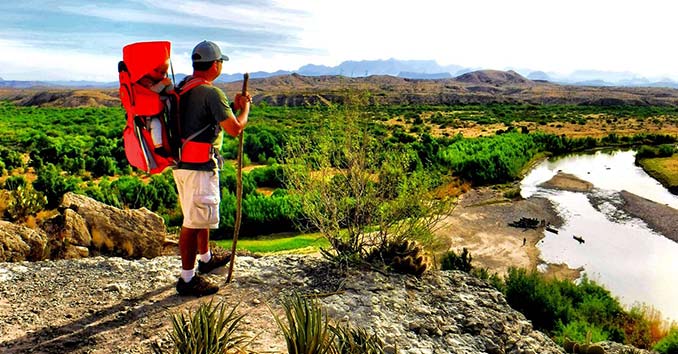
Living in an RV and traveling fulltime can be as cheap or as expensive as you make it. The financial aspect is what holds people back the most, but you can make it work. You may have to boondock more often or camp host to save money or stay put for longer periods of time to make money. Just remember, it’s a lifestyle, not a vacation, so don’t feel pressured to move often. Take your time and see what this beautiful country has to offer.


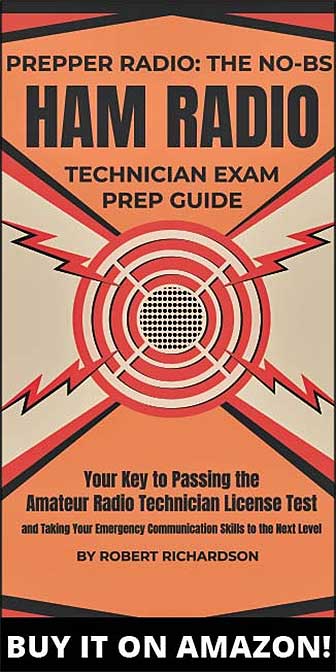
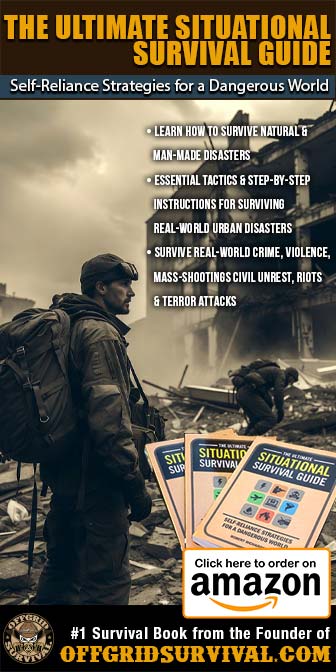

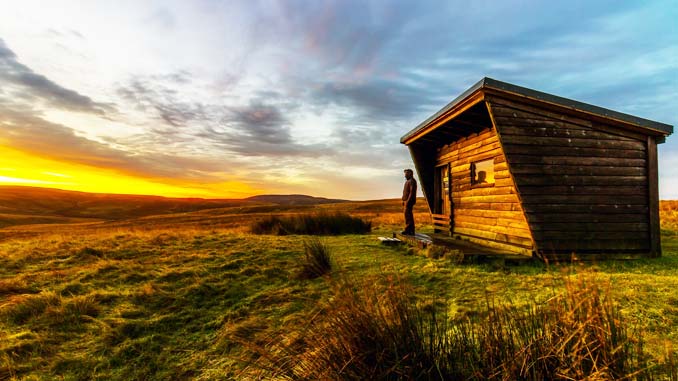
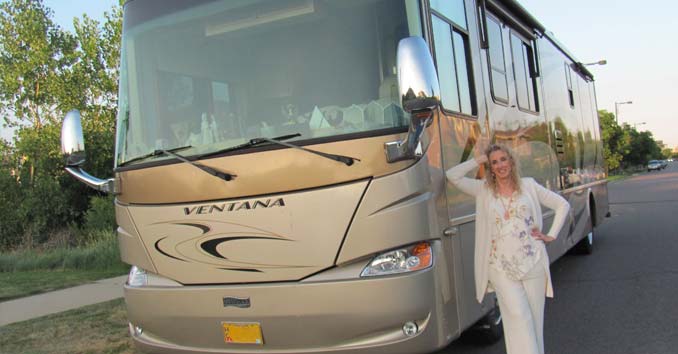
We finally a hievef our goal of having a sailboat and motor home. A bit more complex but so far it’s working.